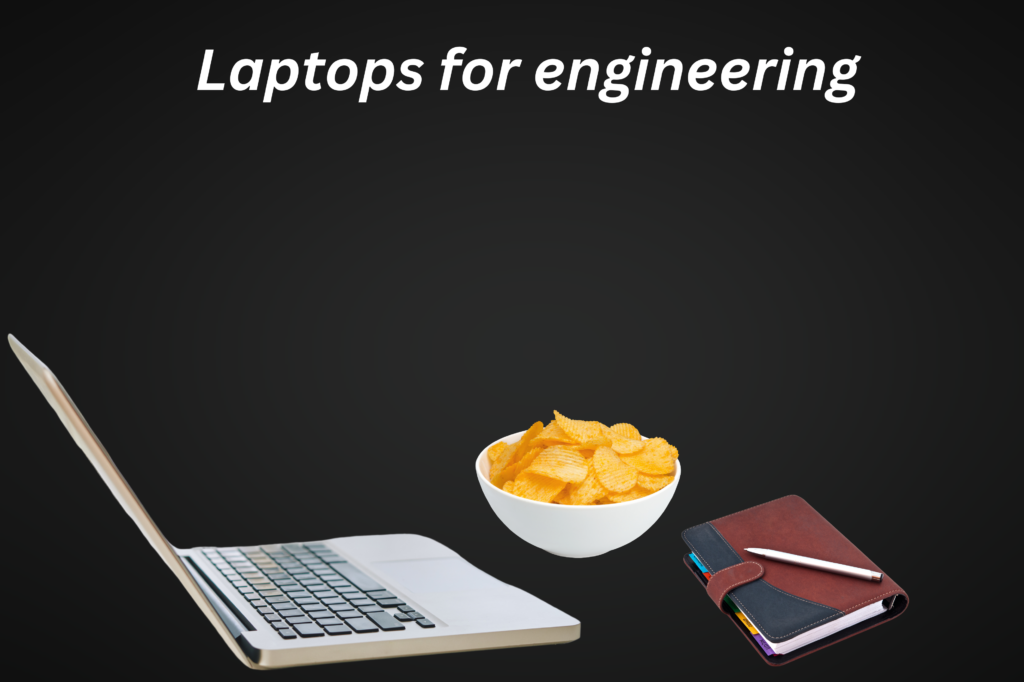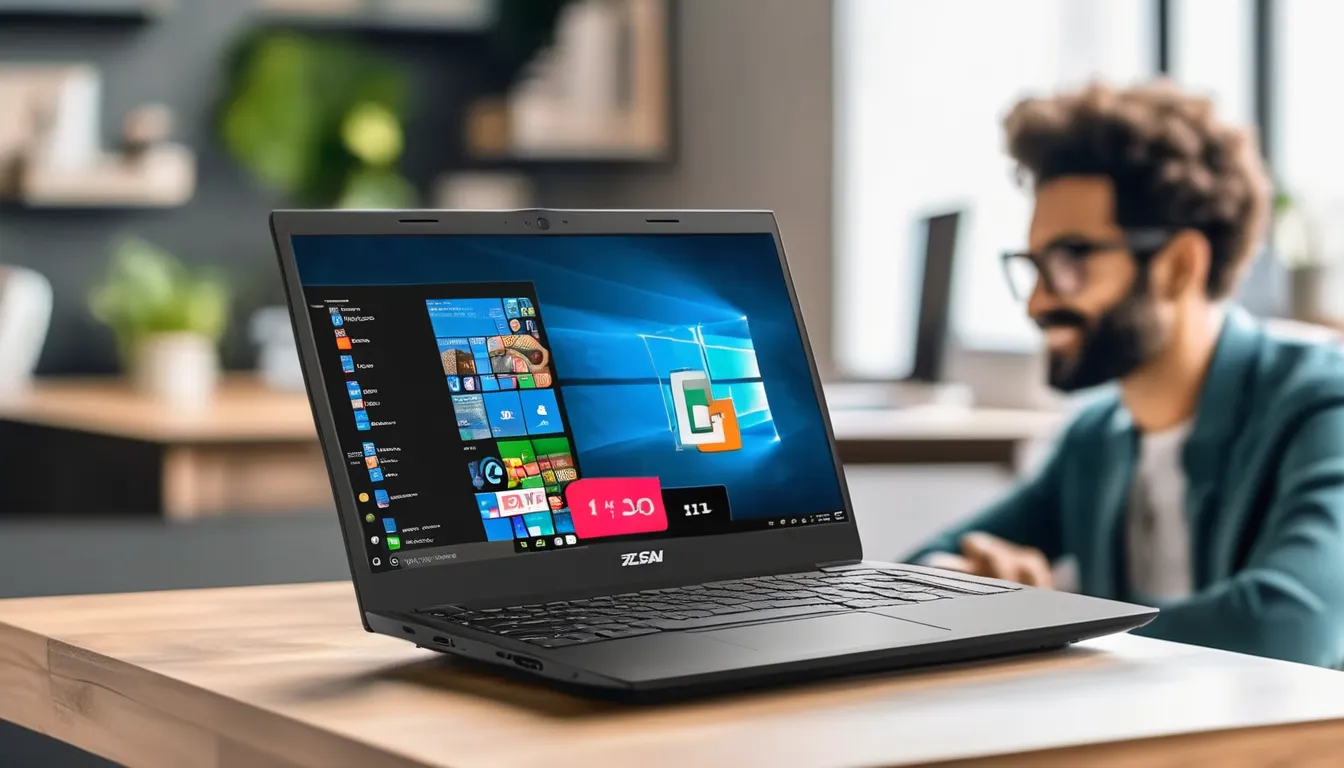It is hard to pick a suitable machine, even if you teach tech. If you want to make CAD models, run simulations, or write complicated programs, you will need a laptop that can handle a lot of software heavy work and software. You can be sure that these are the best computers for engineering students because they are cheap, fast, and can handle your job.

What to Look for in a Laptop for Engineering Majors
Here is a list of the best laptops for engineering students. But first, here are some things to think about:
Processor (CPU):
Robust computers are needed for engineering programs like MATLAB, AutoCAD, and SolidWorks. Try to get a CPU with at least an Intel Core i5 or an AMD Ryzen 5. A Core i7 or Ryzen 7 will work better in the long run.
RAM:
To run multiple apps smoothly, at least 16GB of RAM is recommended. While 8GB may be enough for light tasks, 16GB ensures you can run more demanding software without lag.
Storage:
SSDs are faster and more reliable than regular hard drives. However, if you need more room for big files, you can go up to 1 TB. The best SSD size is 512GB.
Graphics Card (GPU):
3D rendering, simulation, and creation software require a separate graphics card, like an NVIDIA GeForce. If the graphics job you need to do is difficult, look for at least an NVIDIA GTX or RTX series GPU.
Display:
A high-resolution display (Full HD or higher) is essential for detailed work. Screen size is also a matter of personal preference, but 15 to 17 inches is often ideal for engineering jobs.
Battery Life:
Because portability is vital, it is critical to have a laptop that can endure lengthy study sessions. Look for a computer with at least an 8hour battery life.
Most engineering software runs efficiently on Windows. However, if you prefer MacOS, be aware that some applications, such as Bootcamp, may require additional software.
Now that we have covered the essential features let us examine the best laptops for engineering majors in 2024.
Dell XPS 15
The Dell XPS 15 is one of engineering student’s greatest laptops. It delivers a tremendous punch in performance and display quality while remaining elegant and portable in design.
Processor: 12th generation Intel Core i7
RAM: 16 GB (expandable).
Storage: 512GB SSD.
GPU: NVIDIA GeForce RTX 3050
Display: 15.6 inches, 4K Ultra HD
The Dell XPS 15 is noted for its gorgeous 4K display, ideal for detailed work and powerful enough to run heavy engineering applications. It also has a fantastic battery life, making it perfect for students frequently on the go. Furthermore, it is lightweight for its size, ensuring portability without sacrificing performance.
Advantages:
Stunning 4K display.
Sleek and portable.
Great overall performance
Disadvantages:
High pricing point
MacBook Pro 16 Inch (M2 Chip)
If you are an engineering student who favours macOS, the MacBook Pro 16 inch is your best option. This laptop, powered by an Apple M2 CPU, has exceptional battery life and performance.
Processor: Apple M2 chip.
RAM: 16 GB.
Storage: 512GB SSD.
Graphics: Integrated Apple GPU (10 cores)
Display: 6-inch Retina
The MacBook Pro 16 boasts exceptional performance, particularly in video editing, simulation, and 3D rendering. It has a bright Retina display with a big screen that’s great for working hard. Its battery life is very long (up to 21 hours), so you can use it all day without charging it.
Advantages:
M2 chip provides exceptional performance.
Incredible battery life.
High-quality Retina display
Disadvantages:
Some technical software may need workarounds.
HP Spectre x360 15t
The HP Spectre x360 is a great choice for people who want speed and freedom. It can also be turned into a tablet useful for taking notes, and it is still powerful enough for challenging engineering tasks.
Processor: 12th generation Intel Core i7
RAM: It comes with 16 GB
Storage: 1TB SSD
GPU: NVIDIA GeForce RTX 3050
Display: 15.6″ 4K OLED touchscreen
The HP Spectre x360 2 1 can switch between laptop and tablet modes, making it useful for various study situations. Its bright 4K OLED screen works great for complex CAD and 3D modelling programs. It’s a good choice for engineering people because it can be used in many ways and has powerful specs.
Advantages:
Convertible design allows for flexibility.
Excellent performance for heavy software
Long battery life
Disadvantages:
Slightly heavier than alternative possibilities.
Lenovo Legion 5 Pro
The Lenovo Legion 5 Pro is one of the best laptops for engineering students interested in 3D modelling, rendering, and game production. It’s designed as a gaming laptop, yet powerful enough to do sophisticated technical jobs.
Processor: AMD Ryzen 7 5800H
RAM: 16 GB
Storage: 512GB SSD
Graphics: NVIDIA GeForce RTX 3060
Display: 16″ QHD (2560 x 1600)
The Lenovo Legion 5 Pro delivers exceptional performance thanks to the robust AMD Ryzen 7 processor and RTX 3060 GPU. Its 16-inch16-inch QHD display, with clear, high resolution graphics, is ideal for technical work. Despite being marketed as a gaming laptop, the specifications make it suitable for technical jobs, mainly 3D design.
Advantages:
Strong performance for CAD and 3D software High-quality display
Excellent value for the Money.
Disadvantages:
Bulky design.
Higher power usage leads to a shorter battery life.
Microsoft Surface Laptop Studio
The Microsoft Surface Laptop Studio is another adaptable alternative combining creativity and technical power. Its revolutionary hinge enables the laptop to move between modes, making it suitable for work and study.
Processor: Intel Core i7
RAM: 16GB Storage capacity: 512GB SSD
Graphics: NVIDIA GeForce RTX 3050 Ti
Display: 14.4-inch, 2400 x 1600 touchscreen
The Surface Laptop Studio is built to multitask and run engineering software such as MATLAB and AutoCAD. Its unique form allows you to switch between a standard laptop and a creative canvas, making it an excellent choice for students who value design and practicality.
Advantages:
Versatile design with touchscreen.
High performance and excellent display quality
Disadvantages:
Expensive for its specifications
Limited port options 6.
Acer Predator Helios 300
The Acer Predator Helios 300 is a cheap yet strong option for engineering students seeking a high-performance laptop without breaking the budget.
Processor: Intel Core i7-12700H
RAM: 16 GB.
Storage: 512GB SSD.
Graphics: NVIDIA GeForce RTX 3060
Display: 15.6″ Full HD
This laptop is ideal for engineering students needing a powerful machine while staying within budget. The Acer Predator Helios 300 boasts excellent specifications, including the RTX 3060 GPU and a 12th generation i7 processor. This combination delivers adequate power for jobs such as 3D graphics, simulations, and programming without the high cost of some other laptops.
Advantages:
Affordable for its specifications.
Excellent performance for a demanding program. High build quality.
Disadvantages:
Heavier and bulkier than other options.
Battery life could be improved.
ASUS ZenBook Pro Duo 15
The ASUS ZenBook Pro Duo 15 is an innovative solution for engineering students seeking the most excellent multitasking experience, including dual screens.
Processor: Intel Core I9
RAM: 32 GB.
Storage: 1TB SSD.
Graphics: NVIDIA GeForce RTX 3080
Display: 15.6-inch 4K OLED main panel and 14-inch 4K secondary screen.
This laptop has two 4K screens, which make it easy for students to do more than one thing at once. When paired with the NVIDIA RTX 3080, the Intel Core i9 processor ensures the laptop can run any engineering tool. Even though it’s costly, this laptop is excellent for multitasking and speed, so anyone looking to buy a high-end machine should get it.
Advantages:
Includes dual 4K screens for multitasking.
Compelling specifications.
Premium design and construction quality.
Disadvantages:
Expensive and bulky owing to twin screens.
Conclusion
Choosing the best laptop for engineering students requires balancing performance, mobility, and price. If you want a sleek, powerful laptop, the Dell XPS 15 and HP Spectre x360 15t are significant options that mix performance and portability. For Mac users, the MacBook Pro 16 inch with the M2 chip provides excellent performance, albeit you may need to employ workarounds for specific software. If you are a power user or need to run graphics heavy applications like CAD or 3D rendering software, the Lenovo Legion 5 Pro and ASUS ZenBook Pro Duo 15 provide the best value with their strong processors and dedicated GPUs.
